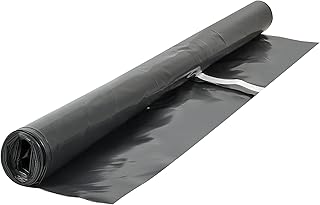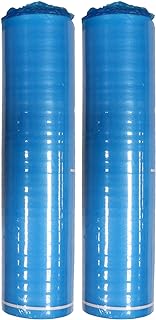5 important factors worth considering when looking for the best underlayments for vinyl flooring
When choosing the best underlayment for vinyl flooring, there are many important factors to consider. These factors can impact how well your flooring lasts and performs over time. Things like moisture resistance, sound insulation, cushioning, and thermal properties all play a role in making sure your vinyl floors look great and hold up well. By paying attention to details like the materials used, proper installation methods, and overall quality, you can create a strong foundation for your living area that enhances the beauty of your space.
See our guide to the best underlayments for vinyl flooring.
Type of subfloor
When choosing underlayment for vinyl flooring, it’s important to consider the type of subfloor in your space. The subfloor is the base for the flooring and affects how long it will last. Picking the right underlayment that works well with your subfloor can make your vinyl flooring perform better. If you have a concrete subfloor, it’s a good idea to use a moisture barrier underlayment to keep water out and protect your vinyl. A thicker underlayment can also help with insulation and reducing noise in buildings with multiple floors.
If you have a wooden subfloor, look for underlayments that offer extra cushioning for more comfort and to hide any small imperfections. Make sure the underlayment provides enough support for the vinyl flooring to prevent damage. Using an underlayment that acts as a vapor barrier can also protect your flooring from moisture issues with a wooden subfloor. By choosing high-quality underlayments that are right for your subfloor, you can extend the life of your vinyl flooring and create a more comfortable, quiet space in your home or workplace.
Thickness of underlayment
When choosing underlayment for vinyl flooring, it’s important to consider the thickness. A thicker underlayment can improve the performance and durability of your flooring. It helps with sound insulation, cushioning, and support for the vinyl flooring. A thicker underlayment can also level out minor imperfections in the subfloor, making the flooring surface more stable and comfortable.
Additionally, a thicker underlayment provides extra protection against moisture and improves thermal insulation, creating a more comfortable indoor environment. While a thicker underlayment may cost a bit more upfront, the long-term benefits include improved comfort, durability, and longevity for your vinyl flooring. Ultimately, selecting a thicker underlayment not only enhances the performance and feel of your floors but also contributes to a more sustainable and resilient flooring solution that will last.
Sound absorption
Selecting the right underlayment for vinyl flooring is important for making your space more comfortable and functional. One key factor to consider is how well the underlayment absorbs sound to create a peaceful and quiet atmosphere. Choosing an underlayment with good sound-absorbing qualities can reduce noise in your home and help make the environment more calming. By focusing on underlayments that dampen sound, you can easily create a quiet space where footsteps are softened and disruptions are minimized.
Getting a high-quality underlayment that emphasizes sound absorption is a smart choice that improves the overall quality of your living space. Creating a peaceful and tranquil environment is valuable in any home. When looking for underlayments, make sure to find ones that offer good support and durability, as well as great noise-reduction features. By including sound-absorbing underlayments in your flooring project, you are not only enhancing the comfort of your space, but also investing in the peace of mind that comes with a calm and harmonious home.
Moisture resistance
When choosing underlayments for vinyl flooring, it’s important to focus on moisture resistance. This feature is essential for protecting your vinyl flooring from damage caused by mold and mildew. Investing in underlayments with strong moisture resistance not only prolongs the life of your flooring but also improves indoor air quality. By prioritizing moisture resistance, you are taking proactive steps to maintain your flooring investment and create a healthier living environment in your home. Ultimately, choosing underlayments with good moisture resistance is not just practical, it’s a smart decision that enhances the durability and sustainability of your vinyl flooring.
Installation method
When choosing an underlayment for vinyl flooring, it’s important to consider the installation method. Some people prefer peel-and-stick underlayments for their ease of use, while others may opt for a floating underlayment for better durability. Properly installing a floating underlayment can improve sound insulation, protect against moisture, and enhance the overall performance of your vinyl flooring.
In my experience, the way you install your underlayment can affect how well your vinyl flooring holds up over time. While peel-and-stick underlayments may be convenient, they don’t offer the same stability and protection as a floating underlayment. By following the installation instructions carefully and taking necessary precautions, you can create a strong base for your vinyl flooring that will last. Choosing the right installation method for your underlayment can have a big impact on how well your vinyl flooring performs and how long it lasts.
Conclusion
In the world of vinyl flooring, underlayments are more than just an accessory – they are crucial for making sure the floor lasts a long time. They help protect against moisture and sound, making each step more comfortable. Exploring underlayments for vinyl flooring reveals many benefits that fit together perfectly with the flooring, showing how important this layer really is. With increased durability, comfort, and sound insulation, the underlayment plays a key role in making sure the vinyl flooring lasts a long time and provides a peaceful environment. Want more info on dressed trophy, check the best dressed trophy.

